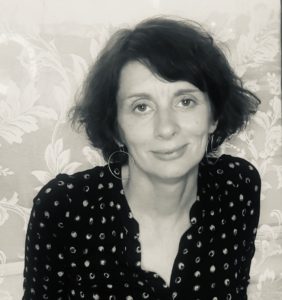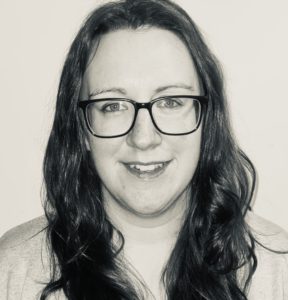r. a. g. e. realising•absolute•gender•equality is a feminist collective that integrates activism, artistic, legal and feminist ethnographic methodologies in addressing patriarchal social structures, inequality and injustices towards women and marginalised individuals and social groups. Through an experimental and multidisciplinary praxis we generate creative ways of revealing these biases whilst initiating conversations that enable empowerment, autonomy and social solidarity.
Areas of work include workshop facilitation, consultation, artistic interventions and creative collaborative community projects. We also produce a quarterly zine that includes a space for public critical response and reflection. The zine is understood within the historical context of zines having been an affordable method of disseminating the voice of the counter-culture, particularly by feminist movements such as the suffragettes, workers unions and political groups.
About us
Sarah Jayne Booth  is a Cork based multimedia installation artist whose work centers on domesticity, gender inequality, bodily autonomy and social histories. She has an MA in Art & Process and maintains an actively engaged practice with a number of solo exhibitions, bursaries and significant group exhibitions in major regional galleries. She initiated and heads up the collective r. a. g. e. (realising absolute gender equality) Achievements include: an Arts Council Agility Award, a Bursary Award from Cork City Council & Arts Council Professional Development Funding in 2021. A residency at Cill Rialaig Arts Centre in 2020. Three group exhibitions in 2019: I see crimson I see red Cork, Cahoots A4 Sounds Dublin & the Kinsale Arts Festival. In 2017 Diving the Wreck: collaboration with SoftTack, UCC Cork, UCD Dublin & Lass Struggle UCL London. She’s had three solo exhibitions: Signal Arts Centre, South Tipperary Arts Centre & Bookcube Gallery. Awarded further residencies with 126 Artist–Run Gallery, Galway & Fire Station Studios, Dublin and received another bursary from Cork City Council back in 2013. She holds a studio in Cork City with Sample-Studios where she is also on the board of directors and supports their Tactic Visual Arts Programme.
is a Cork based multimedia installation artist whose work centers on domesticity, gender inequality, bodily autonomy and social histories. She has an MA in Art & Process and maintains an actively engaged practice with a number of solo exhibitions, bursaries and significant group exhibitions in major regional galleries. She initiated and heads up the collective r. a. g. e. (realising absolute gender equality) Achievements include: an Arts Council Agility Award, a Bursary Award from Cork City Council & Arts Council Professional Development Funding in 2021. A residency at Cill Rialaig Arts Centre in 2020. Three group exhibitions in 2019: I see crimson I see red Cork, Cahoots A4 Sounds Dublin & the Kinsale Arts Festival. In 2017 Diving the Wreck: collaboration with SoftTack, UCC Cork, UCD Dublin & Lass Struggle UCL London. She’s had three solo exhibitions: Signal Arts Centre, South Tipperary Arts Centre & Bookcube Gallery. Awarded further residencies with 126 Artist–Run Gallery, Galway & Fire Station Studios, Dublin and received another bursary from Cork City Council back in 2013. She holds a studio in Cork City with Sample-Studios where she is also on the board of directors and supports their Tactic Visual Arts Programme.
 Dr EVE OLNEY Is a socially engaged artist, activist, curator, educator and practice-based researcher. Her praxis incorporates a feminist ethnographic approach to social change through creative methodologies in constructing alternative social imaginaries. She co-founded and co-directs Radical Institute, a training and mentorship scheme for activists and artists. She conceived and leads the collaborative social scheme Art Architecture Activism. She co-produced (with Kate O’Shea) the major social arts programme SPARE ROOM, 2019 (funded by Irish Arts Council) from this scheme. She is currently working on a creative social living, working, learning scheme, called The Living Commons and has five programmes in development, funded by the Irish Arts Council, entitled Living Commons: Reconfiguring the Social. She is a member of the Transnational Institute of Social Ecology (TRISE) and a founding member of Aesthetix of Empowerment – an international feminist research/training collective.
Dr EVE OLNEY Is a socially engaged artist, activist, curator, educator and practice-based researcher. Her praxis incorporates a feminist ethnographic approach to social change through creative methodologies in constructing alternative social imaginaries. She co-founded and co-directs Radical Institute, a training and mentorship scheme for activists and artists. She conceived and leads the collaborative social scheme Art Architecture Activism. She co-produced (with Kate O’Shea) the major social arts programme SPARE ROOM, 2019 (funded by Irish Arts Council) from this scheme. She is currently working on a creative social living, working, learning scheme, called The Living Commons and has five programmes in development, funded by the Irish Arts Council, entitled Living Commons: Reconfiguring the Social. She is a member of the Transnational Institute of Social Ecology (TRISE) and a founding member of Aesthetix of Empowerment – an international feminist research/training collective.
 Dr Honor Tuohy traverses the borders between many areas of focus. She is a writer, a musician and a piano teacher – trained in classical, but really only ever wants to play whatever comes to mind in the moment these days. Through that move from ‘playing classical’ to playing her own sound and insisting upon it, she won part of her battle towards freedom. Purely by accident she ended up in academia, and purely by accident she realised she loved it – not the power structures within (show her a place where they don’t exist) – but what she loved was the absolute privilege of being granted a way to view the world from a much larger and wider perspective, even if sometimes a new perspective drove her to dark places. Although she has a PhD for her 80k word thesis which explored the wonderful concepts of ‘legitimacy’, ‘power’ and ‘value’ in a particular social world, it was the development of her learning and writing that made that work all worthwhile. (Having said that, sometimes she considers having the letters PhD tattooed on her face due to having survived the PhD process. It’s not for the faint hearted.) She slowly but surely found her niche where she knew it always had been – at the intersection of power structures, international law, domestic law, feminism, equity, and equality. She is currently writing as much as she can for as many publications as she can, as well as a dissertation for her LLM in International Human Rights Law and Public Policy which focuses on feminist lawyers’ re-writing of court cases around the world and how they relate to ‘normal’ legal reasoning. She feels at home with the r.a.g.e. collective, and she feels that everyone needs a r.a.g.e. collective in their life. It’s only right.
Dr Honor Tuohy traverses the borders between many areas of focus. She is a writer, a musician and a piano teacher – trained in classical, but really only ever wants to play whatever comes to mind in the moment these days. Through that move from ‘playing classical’ to playing her own sound and insisting upon it, she won part of her battle towards freedom. Purely by accident she ended up in academia, and purely by accident she realised she loved it – not the power structures within (show her a place where they don’t exist) – but what she loved was the absolute privilege of being granted a way to view the world from a much larger and wider perspective, even if sometimes a new perspective drove her to dark places. Although she has a PhD for her 80k word thesis which explored the wonderful concepts of ‘legitimacy’, ‘power’ and ‘value’ in a particular social world, it was the development of her learning and writing that made that work all worthwhile. (Having said that, sometimes she considers having the letters PhD tattooed on her face due to having survived the PhD process. It’s not for the faint hearted.) She slowly but surely found her niche where she knew it always had been – at the intersection of power structures, international law, domestic law, feminism, equity, and equality. She is currently writing as much as she can for as many publications as she can, as well as a dissertation for her LLM in International Human Rights Law and Public Policy which focuses on feminist lawyers’ re-writing of court cases around the world and how they relate to ‘normal’ legal reasoning. She feels at home with the r.a.g.e. collective, and she feels that everyone needs a r.a.g.e. collective in their life. It’s only right.

